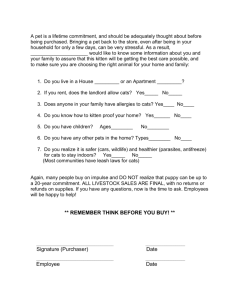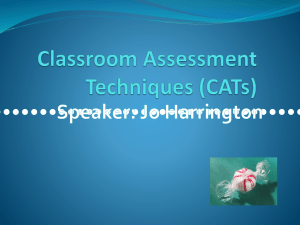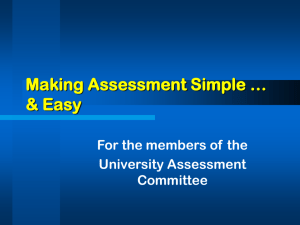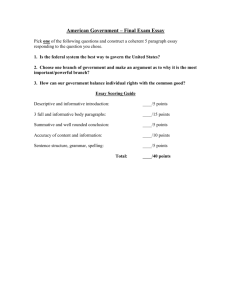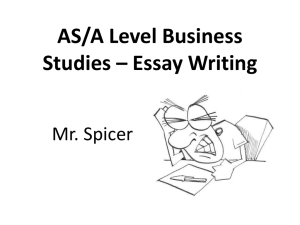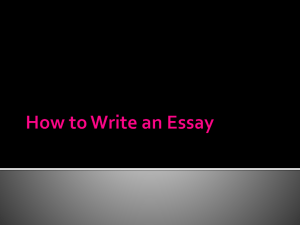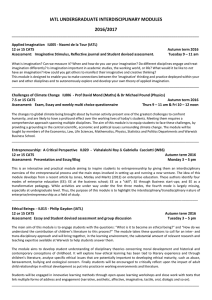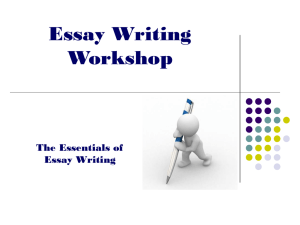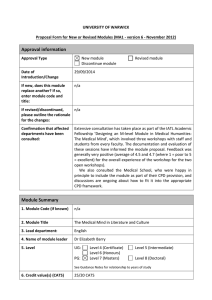Reflection Classroom Assessment Techniques
advertisement
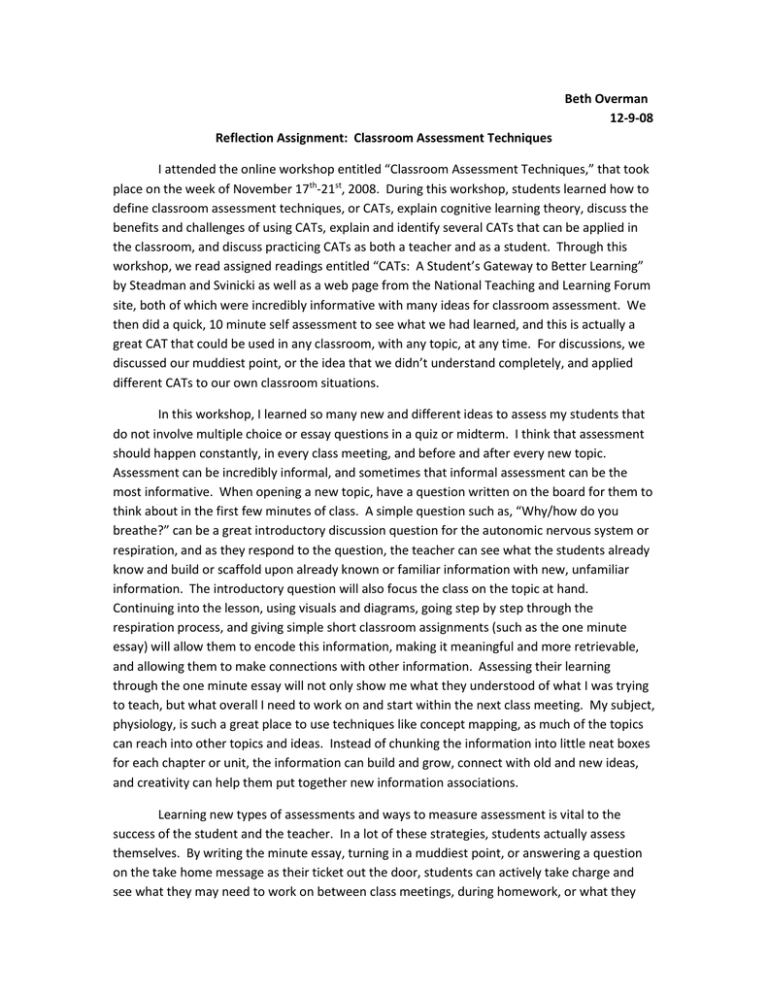
Beth Overman 12-9-08 Reflection Assignment: Classroom Assessment Techniques I attended the online workshop entitled “Classroom Assessment Techniques,” that took place on the week of November 17th-21st, 2008. During this workshop, students learned how to define classroom assessment techniques, or CATs, explain cognitive learning theory, discuss the benefits and challenges of using CATs, explain and identify several CATs that can be applied in the classroom, and discuss practicing CATs as both a teacher and as a student. Through this workshop, we read assigned readings entitled “CATs: A Student’s Gateway to Better Learning” by Steadman and Svinicki as well as a web page from the National Teaching and Learning Forum site, both of which were incredibly informative with many ideas for classroom assessment. We then did a quick, 10 minute self assessment to see what we had learned, and this is actually a great CAT that could be used in any classroom, with any topic, at any time. For discussions, we discussed our muddiest point, or the idea that we didn’t understand completely, and applied different CATs to our own classroom situations. In this workshop, I learned so many new and different ideas to assess my students that do not involve multiple choice or essay questions in a quiz or midterm. I think that assessment should happen constantly, in every class meeting, and before and after every new topic. Assessment can be incredibly informal, and sometimes that informal assessment can be the most informative. When opening a new topic, have a question written on the board for them to think about in the first few minutes of class. A simple question such as, “Why/how do you breathe?” can be a great introductory discussion question for the autonomic nervous system or respiration, and as they respond to the question, the teacher can see what the students already know and build or scaffold upon already known or familiar information with new, unfamiliar information. The introductory question will also focus the class on the topic at hand. Continuing into the lesson, using visuals and diagrams, going step by step through the respiration process, and giving simple short classroom assignments (such as the one minute essay) will allow them to encode this information, making it meaningful and more retrievable, and allowing them to make connections with other information. Assessing their learning through the one minute essay will not only show me what they understood of what I was trying to teach, but what overall I need to work on and start within the next class meeting. My subject, physiology, is such a great place to use techniques like concept mapping, as much of the topics can reach into other topics and ideas. Instead of chunking the information into little neat boxes for each chapter or unit, the information can build and grow, connect with old and new ideas, and creativity can help them put together new information associations. Learning new types of assessments and ways to measure assessment is vital to the success of the student and the teacher. In a lot of these strategies, students actually assess themselves. By writing the minute essay, turning in a muddiest point, or answering a question on the take home message as their ticket out the door, students can actively take charge and see what they may need to work on between class meetings, during homework, or what they need to ask questions on next class. Giving them responsibility in their own learning may, in a roundabout way, inspire motivation. This constant assessment will also keep me on tract. If I’m making sure in every class that they are getting the main idea, that I am presenting the information in a way that they can understand, then at test time or exam time, the students will not be rushing around last minute to understand general topics from many weeks ago. If they are, then I have not done my job correctly. Instead, they should be recalling information that they have already encoded into deep learning. I think that this workshop not only has let me learn multiple different assessment techniques for me to use, but has also helped me critically assess my learning in other courses. It’s incredibly interesting to watch some of my professors teach, and watch them rely on 3 exam grades to assess learning on information from an entire semester. I have one professor who offers voluntary quizzes at the end of each topic, and the students can turn them in on their own time, and he provides prompt feedback on each topic before the exam is given. I think this is a great way to see who in the class is working on the information outside of class, who is understanding, and what he can do differently to help us understand the information. Overall, school systems place so much emphasis on assessments such as End of Grade Tests or final exams that the students are incredibly stressed, anxious, and worried, and I do not believe that this can be the only way to assess how students learn. An ongoing assessment, occurring on a daily basis, does take time and could be challenging to begin at first, but I believe that it will end with much better results in student scores, student understanding, and retention of information.
